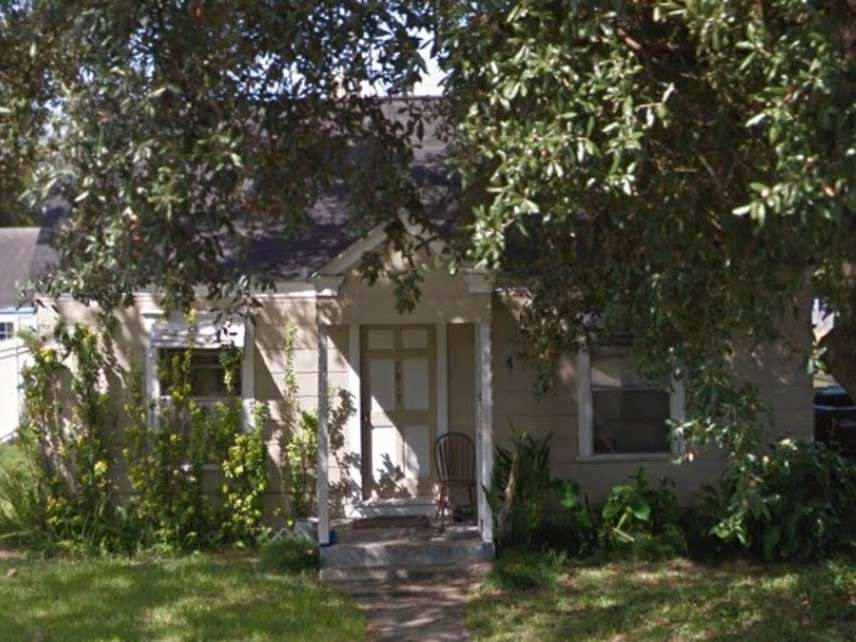No-Knock Warrant for Deadly Drug Raid Describes Heroin and a Gun Cops Didn't Find
Houston narcotics officers thought bursting into the house without warning was the cautious approach.

According to the search warrant authorizing the drug raid that killed a middle-aged Houston couple in their home on Monday, police were expecting to find many plastic bags containing a "brown powder" identified as black-tar heroin. Instead they found an unspecified amount of marijuana and a white powder they thought might be cocaine or fentanyl.
The no-knock warrant, obtained by KTRK, the ABC affiliate in Houston, was approved by Houston Municipal Court Judge Gordon Marcum on Monday afternoon, about three and a half hours before narcotics officers burst into the home of Dennis Tuttle and Rhogena Nicholas at 7815 Harding Street. On Sunday, the officer who applied for the warrant says in his affidavit, he sent a confidential informant to buy heroin at that location from "a white male, whose name is unknown." The C.I. emerged from the house with "a quantity of brown powder" and reported that he had seen more of it packaged in "a large quantity of plastic baggies." The officer, whose name is blacked out, says he was watching the informant the whole time and adds that afterward "surveillance was placed on the above location in question by narcotics officers."
So where did the heroin go? According to the affidavit, there were numerous bags of it in the house on Sunday. Yet they had disappeared by the following evening, notwithstanding the police surveillance.
That is not the only inconsistency. The C.I. claimed to have seen "a semi-auto hand gun of a 9mm caliber" in the house on Sunday. Yet police found no such weapon on Monday. In addition to the .357 Magnum revolver that Tuttle reportedly fired at the narcotics officers after they knocked down his door and killed his dog with a shotgun, police found three shotguns, a .22 rifle, and a Remington 700 bolt-action rifle. What happened to the 9mm semi-automatic pistol?
That possibly nonexistent gun figured in the police request for "authorization to enter the suspected place and premises without first knocking and announcing the presence and purpose of officers executing the warrant." The affidavit explains that "when weapons are used or displayed at a narcotic transaction, it is for the protection of the narcotics, and or to buy time so that the narcotics may be destroyed." Hence knocking and announcing would be "dangerous, futile, or would inhibit the effective investigation of the offense described in this Affidavit."
As it turned out, breaking into the house without warning and opening fire with a shotgun was not a safer approach. It precipitated a shootout during which five officers were injured (four by gunfire) and two suspects were killed. Based on the official description of the raid (which was not recorded), it is entirely possible that Tuttle did not realize the armed men invading his home were police officers. It is hard to imagine that things would have turned out worse if police had taken the "dangerous" approach of announcing themselves.
This disastrous search supposedly was the culmination of a two-week investigation triggered by a neighbor's tip. During that time police apparently did not manage to document suspicious activity at the house or even identify the owners, who had lived there for two decades. Yet the officer who sought the warrant confidently informed his C.I. that "narcotics were being sold and stored" in the house. How did he know that?
Police Chief Art Acevedo claims the home was locally notorious as "a drug house" and a "problem location." Yet after the raid, neighbors told local reporters they had not seen any signs that Tuttle and Nicholas, who seemed like perfectly nice people, were selling drugs. Since I wrote about the raid yesterday, I have received messages from other neighbors who say the same thing. "They were wonderful people" who "never bothered anyone," according to one. Evidently Tuttle and Nicholas were so discreet that none of these people noticed anything suspicious yet so conspicuous that "the neighborhood thanked our officers" for the raid, as Acevedo put it.
As I said yesterday, the violent home invasion that police staged on Monday would have been reckless and immoral even if Tuttle and Nicholas were selling heroin. But the evidence against them seems to have been limited to the word of a paid confidential informant who claimed to have seen drugs and a handgun that were mysteriously gone the following day, even though police supposedly were watching the house in the interim.


Show Comments (101)